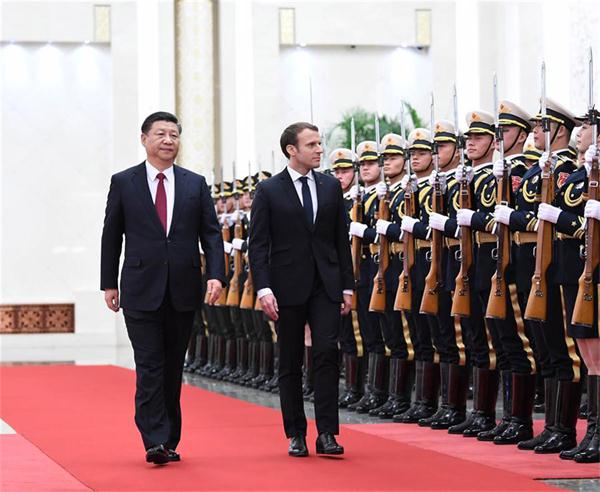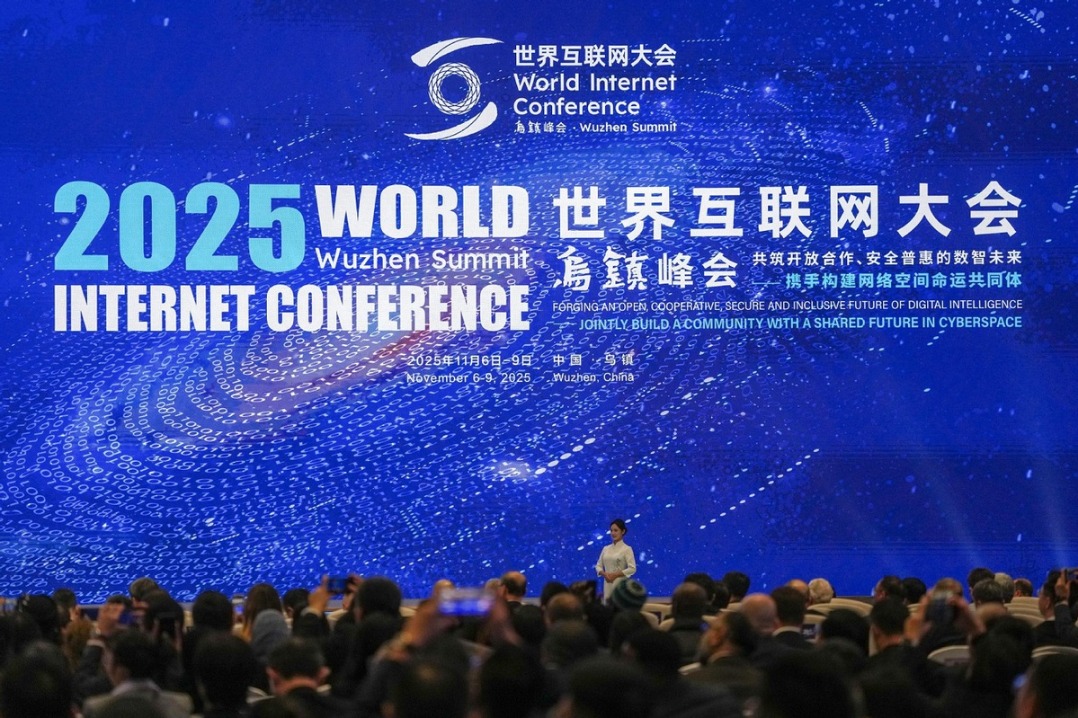A step toward new relationships between China and France


It is self-evident that Beijing attaches great attention to the state visit by the French President EmmanuelMacron to China. The Chinese Foreign Ministry spokesman used three “firsts” to describe Macron’s visit to China:He is the first foreign head of state China received in the year 2018, the first head of state of a EU member state to visit China after the 19th CPC Congress, this is Macron's first state visit to China after assuming the presidency. In light of this, it is logical to say that Macron’s visit is significant for the China-France and China-Europe relations in the new era. France is seen as a stable political partner in Europe, while Brexit and Germany’s rising populism affect Europe’s two largest economies. In France, Macron has taken strong steps to move quickly to affect the promised changes that ushered him into the presidency.
In societies based on legitimacy, to be legitimate becomes crucial. This is why China since now has always highlighted that France was the first major power in the West to recognize the legitimacy of the Beijing government at ambassadorial level. The two sides have since played an important part in making international relations more sound and democratic, and a new type of comprehensive strategic partnership has been developing between the two powers. Given this, the dimensions of Macron’s visit to China are worth noting.
First, even during the heyday of the Cold War, China and France demonstrated their strong will and wisdom to enhance the strategic consensus and cooperation, including the pursuit of each other’s independent nuclear capacity. The two powers have since promoted their bilateral relationship and global partnership. In Chinese eyes, France is still a great power with global dimensions, especially in the fields of culture, education, and new technology. In 2017, Xi invited France to participate to the Belt and Road Initiative. As a token of friendship and mutual respect, former French prime minister Jean-Pierre Raffarin was chosen by president-elect Macron as a special envoy to Beijing to attend the “BRI Forum” held in May. A strong bilateral exchange gives France first mover advantage to provide China and Chinese companies with a stable base from which to invest and develop in the Belt and RoadInitiative that will bear fruit in years to come.
Second, China has cherished bilateral ties with France, at the same time, it also endorsed European integration from its inception. After Brexit became a reality in 2016, China consistently supported “the EU speaking with one voice”. Indeed, a French version of Brexit would have disastrous consequences for the euro currency. It is the priority for China to maintain more open and stable financial markets as a proper environment for the French economic development. Consider that nearly one third of Chinese foreign currency reserves being held in euros, a fall of the euro’s exchange rate would lower the value of Chinese foreign currency assets, along with the value of all investments made in the Euro-zone. Since China tends to view the euro as a balancing currency against the US dollar, it is in China’s interests to sustain strong overall relationships with the EU. As one of the key players within the EU, France welcomes a prosperous and dynamic China with a view that “the huge Eurasian region between France and China should become a community of interests, responsibility and shared destiny”. A stable France-China strategic partnership will allow the EU and France to gain maximum benefit from the Belt and Road Initiativeand France to act as arbiter in EU-China relations in a changing Global Environment which is mutually important for both the EU and China.
Third, globally China and France are both nuclear powers and members of United Nations Security Council. As Xi reiterated over the phone talks with Macron, China would like to cooperate closely with France to support global governance efforts and contribute to its major achievements, such as “the Paris Agreement” which deals with the mitigation of global greenhouse gas emission. As the Paris agreement went into effect in the same year, French Foreign Minister Laurent Fabius called this ambitious and well-adjusted plan, “a historic turning point in the goal of reducing global warning”. Thinking of global governance in the 21st century, China has advocated globalization as it is the framework under which its unprecedented development continues to unfold. Macron has also considered globalization to be a positive force, which provides many opportunities for growth and development. Due to this, during the electoral campaign in France, Chinese media, such as weibo and WeChat, displayed expressions of the Chinese people’s consistent preference for Macron because France under him may promote stronger cooperative links between China and the EU. In this setting, France may be more instrumental in balancing against the US hegemony, thus contributing to the strategic goals of China.
For sure, in a country like France, Macron must have lots of challenges, one of them is public opinion on the trade disputes, human rights issues and others. Yet, as Macron once said, “You can’t dislike the Chinese who buy Airbus, and dislike those who invest in the airport.” Macron has been highly praised as a standard-bearer of the European Union and a promoter of globalization, reflecting the same views expressed by Xi at the World Economic Forum. Both the continuity of European integration and the perception of globalization as a positive force in the EU are important factors for China. Indeed, the return on investment of the Belt and Road Initiative may sink drastically if the EU were to collapse. Given this, a successful Belt and Road Initiative which is mutually beneficial to all stakeholders will surely bolster the position of Macron and other pro-EU leaders in Europe.
As a well-established industrial power and a mature source of advanced technologies, France follows the initiative with strong interest. It will have the opportunity to contribute to China’s innovation drive via technology transfer, to strengthen vibrant economic and cultural exchanges via promoting a comprehensive partnership between China and the EU. As Rafarin said, “France and China have always placed a major interest in bilateral relationship while putting aside internal political differences.” True, Chinese leaders are looking forward to having an in-depth exchange of views with Macron to move forward China-France relations in the new era.
The author is PhD, professor of School of International and Public Affairs at Jilin University.

































